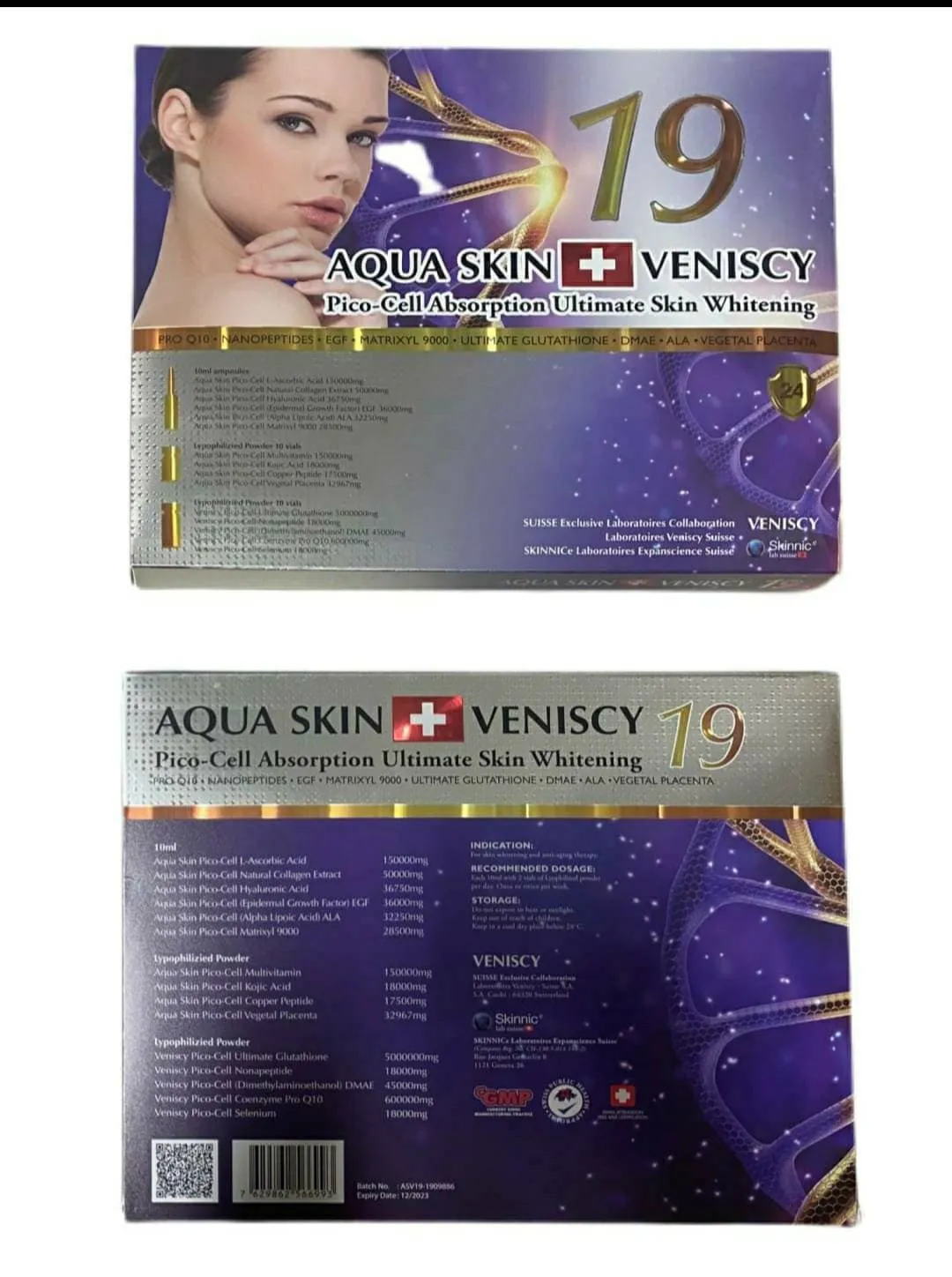What are Whitening Injections?
Whitening injections are cosmetic procedures designed to lighten the skin by reducing melanin production. These injections typically contain ingredients like glutathione, a powerful antioxidant, and sometimes include other substances believed to have skin-lightening properties. The popularity of these injections has risen in recent years, with people seeking to achieve a brighter, more even skin tone. However, it’s crucial to approach this procedure with caution, as the safety and efficacy of whitening injections can vary greatly depending on the ingredients used, the supplier, and the individual’s health profile. It is essential to understand the potential benefits, risks, and regulatory aspects before considering this procedure.
How Whitening Injections Work
The primary mechanism behind whitening injections involves the inhibition of melanin production, the pigment responsible for skin color. Glutathione, a key component in many whitening injections, is an antioxidant that helps to neutralize free radicals and can reduce the activity of tyrosinase, an enzyme crucial for melanin synthesis. By decreasing melanin production, the skin gradually lightens over time. The effectiveness of these injections can depend on several factors, including the dosage of the active ingredients, the individual’s skin type, and the frequency of treatments. Results are not always immediate and typically require multiple sessions to achieve the desired effect. Furthermore, maintaining the results often necessitates ongoing treatments and proper skincare routines.
Types of Whitening Injection Suppliers

Whitening injection suppliers can range from licensed medical professionals to unregulated vendors. It is crucial to choose a reputable supplier to ensure the safety and efficacy of the procedure. Legitimate suppliers often include dermatologists, plastic surgeons, and licensed aesthetic clinics that adhere to strict medical and ethical standards. Conversely, some suppliers operate outside these regulations, potentially offering products of questionable quality and safety. The risks associated with using unregulated suppliers include the use of contaminated products, incorrect dosages, and the potential for adverse health effects. Always verify the credentials and reputation of a supplier before undergoing any cosmetic procedure. Look for suppliers that prioritize patient safety and transparency.
1 Ingredients to Look For
When evaluating whitening injection suppliers, it is critical to examine the ingredients used in the products. Glutathione is a common ingredient, known for its antioxidant properties. However, the purity and concentration of glutathione can vary significantly. Other ingredients, such as vitamin C and alpha-lipoic acid, are sometimes included to enhance the effects of glutathione. Avoid products containing prohibited or untested substances, as these can pose serious health risks. Always request a detailed ingredient list and ensure that the product is manufactured under strict quality control standards. A trustworthy supplier will be transparent about the ingredients used and be able to provide documentation of their quality and safety.
2 Supplier Reputation and Reviews
Researching the reputation and reviews of a whitening injection supplier is a crucial step in ensuring a safe and satisfactory experience. Online reviews, testimonials, and before-and-after photos can provide valuable insights into the supplier’s quality of service and the outcomes of their procedures. Check for reviews on multiple platforms, such as Google, Yelp, and specialized cosmetic review sites, to get a comprehensive view. Pay attention to comments about the supplier’s professionalism, the cleanliness of their clinic, and the overall satisfaction of previous clients. A reputable supplier will have a positive track record and be responsive to customer feedback. Be wary of suppliers with overwhelmingly negative reviews or a lack of online presence.
3 Certifications and Regulations

Verifying the certifications and regulatory compliance of a whitening injection supplier is essential for ensuring the safety of the procedure. Look for suppliers who are licensed and accredited by recognized medical boards or regulatory bodies in their region. These certifications indicate that the supplier meets specific standards of medical practice and patient safety. The products used should be approved by relevant health authorities, such as the FDA or its equivalent in the supplier’s country. Do not hesitate to ask the supplier for proof of their licenses and product approvals. A legitimate supplier will readily provide this information, demonstrating their commitment to ethical practices and patient well-being. Avoiding suppliers who lack proper certifications can significantly reduce the risk of complications.
4 Product Quality and Safety
The quality and safety of the products used by whitening injection suppliers are of paramount importance. Ensure that the products are sourced from reputable manufacturers and that they adhere to stringent quality control standards. Ask the supplier about the manufacturing process, the origin of the ingredients, and any quality assurance measures in place. Avoid suppliers who use generic or unbranded products, as these may be of questionable quality and safety. Proper storage and handling of the products are also critical. The supplier should maintain a clean and sterile environment to minimize the risk of infection. A reliable supplier will prioritize the safety of their clients by using high-quality products and adhering to strict hygiene protocols.
5 Pricing and Costs
The pricing of whitening injections can vary widely depending on the supplier, the ingredients used, and the number of sessions required. While cost should not be the primary factor in your decision, it is important to understand the pricing structure and compare costs from different suppliers. Be wary of suppliers offering unusually low prices, as this may indicate that they are using low-quality products or cutting corners on safety protocols. Ask for a detailed breakdown of the costs, including the price of the injections, consultation fees, and any aftercare expenses. A reputable supplier will provide transparent pricing and be upfront about all associated costs. Consider the overall value, including the supplier’s experience, the quality of the products, and the level of service provided, when evaluating the cost.
6 Consultation and Aftercare

A thorough consultation and comprehensive aftercare plan are essential components of a safe and successful whitening injection procedure. A reputable supplier will conduct a detailed consultation to assess your skin type, medical history, and expectations. They should explain the procedure in detail, discuss potential risks and side effects, and answer all your questions. The consultation should include a physical examination and, if necessary, recommend tests to ensure that you are a suitable candidate for the injections. A well-defined aftercare plan is equally important. This should include instructions on how to care for your skin after the injections, what to expect during the healing process, and when to seek medical attention if any complications arise. The supplier should be available to answer any questions you may have and provide ongoing support throughout the process.
7 Potential Risks and Side Effects
Whitening injections, like any cosmetic procedure, carry potential risks and side effects. These can range from minor reactions, such as redness, swelling, and bruising at the injection site, to more serious complications, such as infections, allergic reactions, and uneven skin tone. The risk of side effects is often higher when using unregulated suppliers or products of questionable quality. It is crucial to discuss these risks with the supplier during the consultation and to understand the potential long-term effects. Make sure to report any unusual symptoms or changes in your skin to the supplier immediately. Choosing a reputable supplier, following aftercare instructions carefully, and being aware of potential risks can minimize the likelihood of complications and help ensure a safer and more satisfying outcome. Always prioritize your health and safety.
